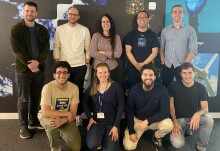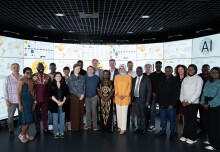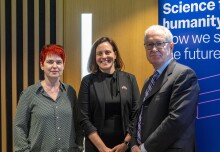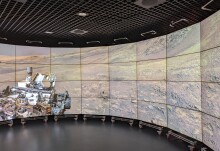

16 Fellowships in AI
Imperial will recruit 16 fellows in artificial intelligence
The I-X Centre for AI in Science has just announced sixteen fellowships in AI in Science.



Imperial will recruit 16 fellows in artificial intelligence
The I-X Centre for AI in Science has just announced sixteen fellowships in AI in Science.


Imperial DSI hosts African delegation to encourage global effort on AI policy
In collaboration with Data for Policy CIC, the Data Science Institute hosted experts to discuss data and AI in Sub-Saharan Africa's public sector.


Eight things we learned about humans and technology at Tech Foresight Day 2024
The ways different generations interact with technology was the hot topic at Imperial Tech Foresight's latest event.


Systems that can’t lie: ‘Honest Computing’ ensures transparent data practices
‘Honest Computing’ offers a new approach to building computer systems, guaranteeing that they operate transparently, reliably, and ethically.


Speakers from 10 Downing Street and Google DeepMind talk at DSI Symposium
Data Science Institutes from Imperial and LSE, co-hosted a symposium exploring how to make Generative AI work well.


Mathematics PhD student wins major science communication competition
Kevin Michalewicz from the Department of Mathematics has won the TakeAIM Competition, an annual competition hosted by the Smith Institute.


AI spinout Polaron shortlisted for £1 million Manchester Prize
Method for optimising advanced materials production, based on Imperial research, is chosen as an example of AI for the public good.


US health research agency ARPA-H sets out funding vision during Imperial visit
The US government biomedical and health research funding agency set out its vision during a visit to Imperial's White City Deep Tech Campus.


Chatham House report sets out recommendations for the next UK foreign secretary
The Imperial-supported report makes key commendations on foreign policy priorities for the next UK government.


AI-powered model cleans up ‘noisy’ Martian data to enable new discoveries
Data scientists propose a new method for ‘de-noising’ complex planetary data, enabling detailed analysis of Mars' surface and proposed landing sites.